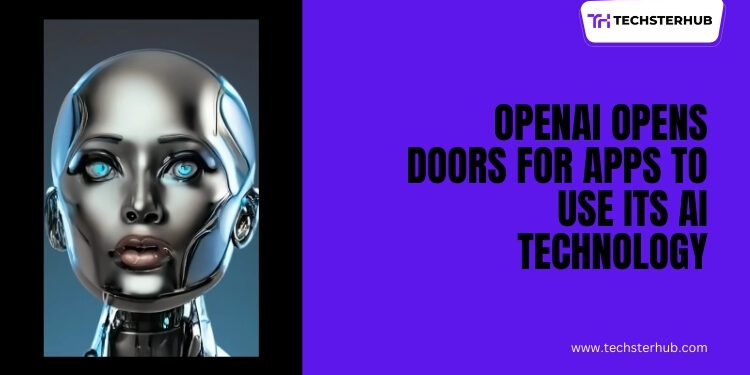OpenAI, the organization behind ChatGPT and other cutting-edge AI models, has recently announced an exciting move: The organization behind ChatGPT and other leading AI models, OpenAI, has just revealed its intent to enable other applications and software to utilize its computer-operating AI functions. This revolutionary advancement stands to transform technological utilization by creating fresh possibilities for both developers and businesses. We will examine the implications of this development while exploring its functionality and significance for artificial intelligence advancement.
What Is a Computer-Operating AI?
Understanding the concept of a “computer-operating AI” is essential before we delve into further details. Computer-operating AI represents an advanced artificial intelligence system that operates the computer’s software and operating system while behaving similarly to a human user. This AI variant performs tasks like program execution and file management alongside issue resolution and voice command handling to replicate human actions.
Think about how you use a computer: Your computer usage requires opening files and managing tasks while you click on applications continuously. Computer-operating AI enables automatic completion of tasks through an intelligent system that identifies your requirements. The learning and adaptive capabilities demonstrated by OpenAI’s AI models such as GPT-4 and other sophisticated systems make them ideal for these types of functions.
OpenAI’s Move: What Does It Mean for Other Apps?
The tech landscape will be transformed because OpenAI has permitted other apps to deploy its computer-operating AI technology. This development represents a significant shift for developers and businesses while shaping the future of technological advancement.
- Easier Integration of Advanced AI
The integration of advanced AI systems like those from OpenAI traditionally needed extensive expertise and resources. OpenAI’s new approach allows developers to incorporate its advanced AI into their applications with greater ease. OpenAI’s AI technology is now accessible for both small business applications and extensive enterprise software solutions across multiple domains. - Improved Productivity for Users
Users will gain more efficient and streamlined interactions when OpenAI’s computer-operating AI functions within their applications. Automation now handles tasks which used to need human input. An AI could help you sort files while offering document workflow improvements and handle meeting scheduling. The smart features decrease time for repetitive work which results in higher productivity levels. - Enhanced User Experience
Imagine an app that completes required tasks while simultaneously understanding your needs more effectively than any previous technology. OpenAI’s AI tracks your work patterns and provides suggestions or actions according to that information. Apps would become more intuitive and user-friendly while delivering personalized experiences to users. - Wider Access to Powerful AI Capabilities
The application of OpenAI’s AI technology remained restricted to ChatGPT and tools developed by OpenAI until this point. OpenAI has expanded its reach by making its AI technology accessible to different applications for a broader audience. This powerful technology now enables applications from education to business sectors to improve their service offerings.
How Will It Work?
What will be the practical implementation of this technology? Developers will be able to incorporate OpenAI’s AI capabilities into their applications through provided Application Programming Interfaces (APIs). APIs create connections between different software platforms enabling them to communicate effectively.
Developers can use OpenAI’s API to command AI systems to perform specific functions including file handling, software interaction, settings management and customer service query resolution. The AI system will process user commands while solving problems and making choices based on provided information.
Imagine you own an accounting application. OpenAI’s AI enables your app to automatically organize receipts, send reminders for tax deadlines, and create reports through the same technology that runs ChatGPT.
The Potential Benefits of OpenAI’s Computer-Operating AI
Allowing other applications to use OpenAI’s AI technology could result in multiple important advantages.
- Boosting Innovation Across Industries
Integrating OpenAI’s AI into various applications reveals new opportunities for innovative development. Developers have the opportunity to build distinctive features powered by artificial intelligence which enhance user experience with software applications. Before this innovation these new applications and services couldn’t exist. AI-powered virtual game assistants and intelligent finance apps alongside smart home systems that learn user preferences represent vast potential opportunities.
- Making Complex Tasks Simpler
OpenAI’s AI stands out because it can turn complicated tasks into manageable processes. The AI system manages a broad spectrum of operations including both the automation of routine tasks and the resolution of complex challenges. AI assistance would enable specialized applications such as legal software and medical tools to become more efficient while simplifying their usage.
- Empowering Businesses
OpenAI’s AI integration into existing business applications promises substantial operational improvements. Businesses can implement AI to take over functions such as customer support operations, data evaluation tasks, and workforce timetable planning. By utilizing AI integration businesses could concentrate on strategic initiatives while cutting down both the duration and expenses of conducting routine tasks. The technology would give small businesses access to advanced tools which were limited to large corporations before.
- Improving Accessibility
AI can help create better access options for disabled individuals. The computer-operating AI developed by OpenAI can be used to create applications which serve users who experience visual impairments and mobility challenges as well as hearing loss. The system will support voice navigation functionalities and smart responses along with converting spoken language into written text.
Challenges and Considerations
OpenAI’s decision to permit other applications to use its AI technology generates several promising possibilities but requires careful attention to existing challenges and considerations.
- Privacy and Security: The use of AI for processing sensitive tasks and personal data requires developers to implement adequate security mechanisms to safeguard users’ information.
- Ethical Issues: When AI becomes a standard feature in daily applications people might question its ethical decision-making ability in scenarios that need human judgment or emotional understanding.
- Quality Control: OpenAI must verify that their AI functions properly and uniformly throughout different applications. Users face problems when AI systems are implemented poorly or used inappropriately.
The Future of AI and Apps: What’s Next?
OpenAI is advancing the AI revolution by permitting other applications to use its computer-operating AI technology. The integration of AI by developers in their software will lead to the creation of smarter apps that enhance user experience by simplifying day-to-day tasks while increasing efficiency. AI will keep expanding its influence over technological advancement because its potential knows no bounds.
The announcement demonstrates AI technology is now accessible to both small developers and start-ups alongside large organizations. AI evolution is expected to bring about more powerful applications in multiple sectors like healthcare and entertainment along with education and others.
Conclusion
OpenAI’s choice to allow external applications to use its computer-operating AI marks a transformative moment for technology development. The move opens up numerous possibilities for developers and businesses together with their users. OpenAI is enabling a revolutionary period of intelligent applications by making its AI technology more accessible which will transform our future technological usage.











